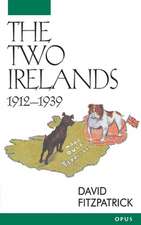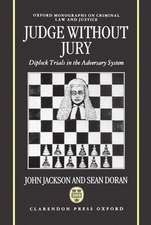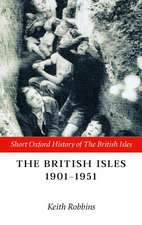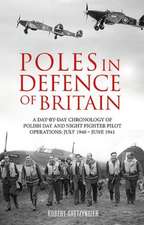Rethinking the Scottish Revolution: Covenanted Scotland, 1637-1651
Autor Laura A. M. Stewarten Limba Engleză Paperback – 15 noi 2018
| Toate formatele și edițiile | Preț | Express |
|---|---|---|
| Paperback (1) | 264.22 lei 31-37 zile | |
| OUP OXFORD – 15 noi 2018 | 264.22 lei 31-37 zile | |
| Hardback (1) | 836.15 lei 31-37 zile | |
| OUP OXFORD – 27 ian 2016 | 836.15 lei 31-37 zile |
Preț: 264.22 lei
Preț vechi: 304.10 lei
-13% Nou
Puncte Express: 396
Preț estimativ în valută:
50.57€ • 52.60$ • 41.74£
50.57€ • 52.60$ • 41.74£
Carte tipărită la comandă
Livrare economică 03-09 aprilie
Preluare comenzi: 021 569.72.76
Specificații
ISBN-13: 9780198828655
ISBN-10: 0198828659
Pagini: 416
Dimensiuni: 162 x 236 x 22 mm
Greutate: 0.61 kg
Editura: OUP OXFORD
Colecția OUP Oxford
Locul publicării:Oxford, United Kingdom
ISBN-10: 0198828659
Pagini: 416
Dimensiuni: 162 x 236 x 22 mm
Greutate: 0.61 kg
Editura: OUP OXFORD
Colecția OUP Oxford
Locul publicării:Oxford, United Kingdom
Recenzii
[T]his is a most informative book. Stewart has done a great deal of research in both primary and secondary sources--there are almost 1000 footnotes, many of them overstuffed, in a 340-page text. There is a lot of new information about the attitudes of the citizenry, including women, and their role in the triumph of the king's opponents... [A]n important piece of scholarship; the future historians of the period will have to take Stewart's findings and arguments into account.
Laura Stewart offers an intelligent and insightful account of a national religious culture within the broader context of the three kingdoms during their mid seventeenth- century crisis.
In her new book, Laura Stewart offers a major reinterpretation of the mid-seventeenth century Scottish revolution based on a reconceptualising of early modern Scottish politics ... The book is grounded in an impressive array of manuscript records, printed works and secondary literature, with its strength lying in the many constructive comparisons made with contemporary events in England ... The author has undoubtedly produced a work of remarkable scope and quality. It has not only nuanced our understanding of the period, but also opened up several avenues for future study and further debate.
The complex strands of revolution and reaction are deftly teased out by Stewart.
[an] excellent book ... Laura Stewart has succeeded resulting book serves to open up the whole subject in a multitude of exciting new ways.
This is an excellent book, tackling with great assurance complex issues on the origins, impact and legacies of the Scottish revolution in the mid-seventeenth century ... Stewart's endeavours will undoubtedly (and deservedly) inspire renewed interest in covenanted Scotland. The conclusion, reflecting on the historical legacy of the Covenant right up to and including the recent referendum on independence makes a convincing case for further engagement with this fascinating period in Scottish history. Stewart has thrown down the gauntlet and let others now take up the challenge.
An excellent, deeply researched book that forces one to reexamine a critical, seldom detailed pivot point in Scottish history ... Essential.
Rethinking the Scottish Revolution successfully reconceptualises the Covenanting era as a vital episode in the evolution of early modern state power and public political engagement, which had long-term consequences for Scotland, and lays the foundation for all future studies of the period.
[A] bold study of Scotland's revolutionary politics of the mid-seventeenth century ... Stewart's careful unfolding of the great crises of the National Covenant of 1638 and the Engagement of 1648, crises that made Scottish politicians and readers alike ever more observant of what was being said and produced in London, is a model of interdisciplinary and even at times transnational scholarship.
Laura Stewart offers an intelligent and insightful account of a national religious culture within the broader context of the three kingdoms during their mid seventeenth- century crisis.
In her new book, Laura Stewart offers a major reinterpretation of the mid-seventeenth century Scottish revolution based on a reconceptualising of early modern Scottish politics ... The book is grounded in an impressive array of manuscript records, printed works and secondary literature, with its strength lying in the many constructive comparisons made with contemporary events in England ... The author has undoubtedly produced a work of remarkable scope and quality. It has not only nuanced our understanding of the period, but also opened up several avenues for future study and further debate.
The complex strands of revolution and reaction are deftly teased out by Stewart.
[an] excellent book ... Laura Stewart has succeeded resulting book serves to open up the whole subject in a multitude of exciting new ways.
This is an excellent book, tackling with great assurance complex issues on the origins, impact and legacies of the Scottish revolution in the mid-seventeenth century ... Stewart's endeavours will undoubtedly (and deservedly) inspire renewed interest in covenanted Scotland. The conclusion, reflecting on the historical legacy of the Covenant right up to and including the recent referendum on independence makes a convincing case for further engagement with this fascinating period in Scottish history. Stewart has thrown down the gauntlet and let others now take up the challenge.
An excellent, deeply researched book that forces one to reexamine a critical, seldom detailed pivot point in Scottish history ... Essential.
Rethinking the Scottish Revolution successfully reconceptualises the Covenanting era as a vital episode in the evolution of early modern state power and public political engagement, which had long-term consequences for Scotland, and lays the foundation for all future studies of the period.
[A] bold study of Scotland's revolutionary politics of the mid-seventeenth century ... Stewart's careful unfolding of the great crises of the National Covenant of 1638 and the Engagement of 1648, crises that made Scottish politicians and readers alike ever more observant of what was being said and produced in London, is a model of interdisciplinary and even at times transnational scholarship.
Notă biografică
Laura A.M. Stewart is Professor of early modern British history, University of York. After completing her PhD at Edinburgh University (2003), she was awarded a British Academy Postdoctoral Research Fellowship (2005), before taking up a lectureship at Birkbeck, University of London. Her first book, Urban Politics and the British Civil Wars: Edinburgh, 1617-53 was published in 2006. She has written many articles on Scottish and Anglo-Scottish history, and led a special edition of the Journal of British Studies on the theme of 'Publics and Participation in early modern Britain (Oct. 2016). A textbook on early modern Scotland, Union, Revolution and Empire, co-authored with Dr Janay Nugent, will be published by Edinburgh University Press for the New History of Scotland series in 2019. Rethinking the Scottish Revolution was nominated for the 2017 Longman-History Today prize and won the American Historical Association Morris D. Forkosch prize in 2017.













